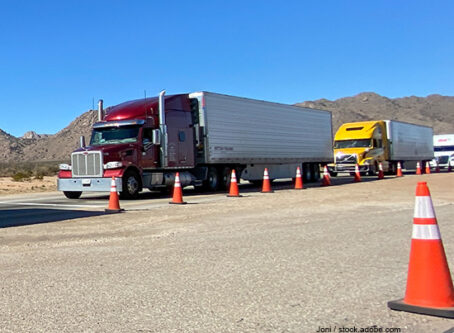
İçindekiler
In a move to address the growing imbalance in contributions to the Highway Trust Fund, Senators Deb Fischer (R-Neb.) and Cynthia Lummis (R-Wyo.), along with Representative Dusty Johnson (R-S.D.), have introduced the Fair Sharing of Highways and Roads for Electric Vehicles Act, commonly referred to as the Fair SHARE Act. This legislation aims to ensure that electric vehicles (EVs) contribute to the fund, which is primarily used to finance highway and bridge projects across the United States.
Background: The Highway Trust Fund
The Highway Trust Fund is a critical component of the U.S. transportation infrastructure, providing essential funding for the construction and maintenance of highways and bridges. Historically, the fund has been supported through fuel taxes, which have been a reliable source of revenue. However, with the increasing popularity of electric vehicles, there is a growing concern about the sustainability of this funding model. Electric vehicles, despite their heavier weight due to large batteries, do not pay fuel taxes and thus do not contribute to the Highway Trust Fund in the same way that gasoline-powered vehicles do.
The Fair SHARE Act: Addressing the Funding Gap
The Fair SHARE Act seeks to rectify this imbalance by introducing a two-tiered fee structure for electric vehicles. The first tier involves a one-time fee of $1,000 on all electric vehicles at the point of sale. The second tier imposes an additional fee of $550 on each battery module that weighs more than 1,000 pounds. These fees would be assessed at the manufacturer level, ensuring that the cost is factored into the vehicle’s purchase price.
This approach mirrors the current federal gas tax and Heavy Vehicle Use Tax, which are designed to reflect the impact of vehicles on road infrastructure. By implementing these fees, the Fair SHARE Act aims to ensure that electric vehicles contribute to the Highway Trust Fund in a manner that reflects their usage and impact on the nation’s roads.
Support for the Fair SHARE Act
The bill has garnered significant support from various industry stakeholders. The Owner-Operator Independent Drivers Association (OOIDA), which represents small-business truckers, has endorsed the legislation. OOIDA President Todd Spencer highlighted the importance of fairness in road usage fees, noting that truckers already contribute significantly to the Highway Trust Fund through various taxes. Spencer emphasized that it is only fair for electric vehicles to also contribute, given their equal access to the nation’s road network.
In addition to OOIDA, the American Trucking Associations, American Road and Transportation Builders Association, American Society of Civil Engineers, Associated General Contractors of America, National Association of Counties, National Association of County Engineers, and the National League of Cities have also expressed support for the Fair SHARE Act. This broad support underscores the widespread recognition of the need for a more equitable funding system that reflects the evolving nature of the automotive industry.
The Impact of Electric Vehicles on Infrastructure
Electric vehicles, particularly those with larger batteries, can weigh significantly more than their gasoline-powered counterparts. This increased weight results in greater wear and tear on roads and bridges, which are critical components of the nation’s infrastructure. Senator Fischer noted that electric vehicles can weigh up to three times as much as gas-powered cars, emphasizing the need for these vehicles to contribute to the maintenance costs of the infrastructure they use.
Economic and Environmental Considerations
While the Fair SHARE Act focuses on ensuring fairness in infrastructure funding, it also intersects with broader economic and environmental considerations. Electric vehicles are often promoted as a more environmentally friendly alternative to traditional gasoline-powered vehicles, given their zero tailpipe emissions. However, the production and disposal of EV batteries have their own environmental impacts, and the increased demand for electricity to power these vehicles can strain local energy grids.
Economically, the shift towards electric vehicles presents both opportunities and challenges. On one hand, EVs can reduce operating costs for consumers and fleets, potentially leading to increased adoption and economic benefits. On the other hand, the transition requires significant investment in charging infrastructure and could disrupt traditional industries related to fossil fuels.
The Fair SHARE Act represents a crucial step towards ensuring that all users of America’s road network contribute fairly to its maintenance. By requiring electric vehicles to pay into the Highway Trust Fund, the legislation aims to address the funding gap created by the shift towards electric transportation. As the automotive industry continues to evolve, it is essential that funding models for infrastructure adapt to reflect these changes. The support from various industry groups underscores the recognition that fairness and equity are essential in maintaining the nation’s critical infrastructure.
Ultimately, the success of the Fair SHARE Act will depend on its ability to balance the needs of different stakeholders while ensuring that the Highway Trust Fund remains viable. As the U.S. continues to invest in its transportation infrastructure, addressing the funding challenges posed by electric vehicles will be crucial for maintaining the integrity and efficiency of the nation’s roads and bridges.
Key Points of the Fair SHARE Act
- Two-Tier Fee Structure:
- A one-time fee of $1,000 on all electric vehicles.
- An additional fee of $550 on each battery module weighing more than 1,000 pounds.
- Assessment at Manufacturer Level: Fees are assessed at the point of sale, ensuring that the cost is incorporated into the vehicle’s purchase price.
- Support from Industry Stakeholders: Endorsed by OOIDA, American Trucking Associations, and other organizations representing truckers and infrastructure builders.
- Addressing Infrastructure Wear and Tear: Recognizes the increased weight of electric vehicles and their impact on roads and bridges.
Future Implications
The passage of the Fair SHARE Act could set a precedent for how electric vehicles are integrated into the broader transportation funding framework. It highlights the need for innovative solutions that balance environmental goals with economic realities and infrastructure needs. As the automotive sector continues to evolve, legislation like the Fair SHARE Act will play a crucial role in ensuring that the benefits of electric vehicles are shared equitably among all users of the nation’s transportation network.

